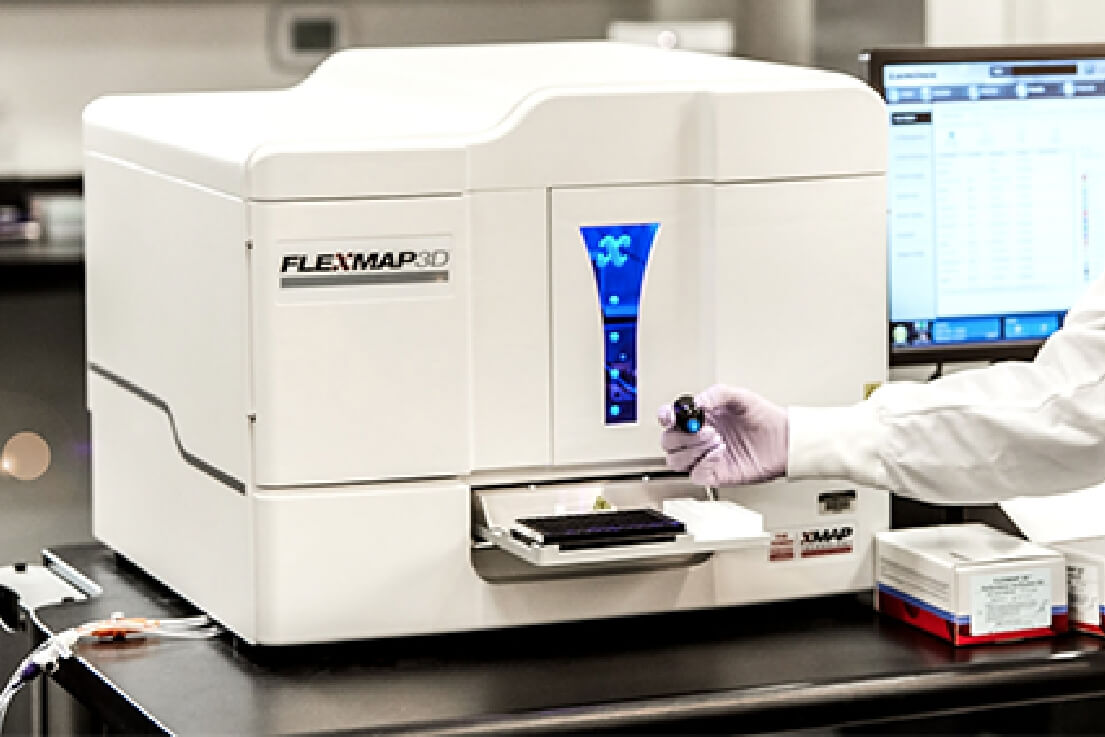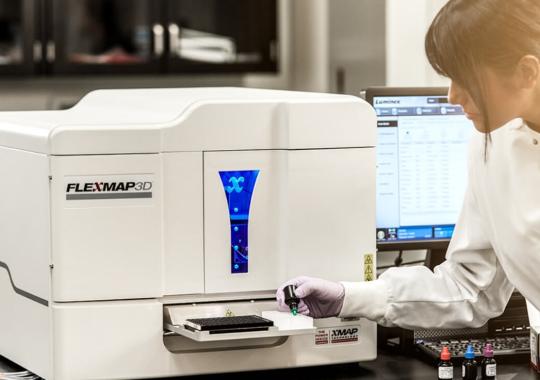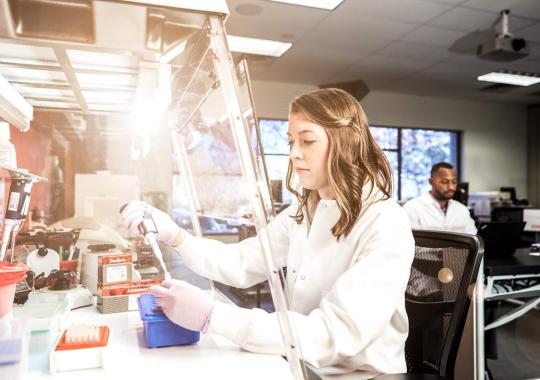Bead-Based
Multiplexing
Multiplexing delivers significantly higher throughput, less hands-on time, and superior results

When determining the optimal immunoassay platform, there are several factors to consider. For labs that need efficient workflows and high-throughput testing, xMAP® bead-based technology is the gold standard in multiplexing, allowing you to generate more data while saving sample, time, and reagents.
For labs that typically perform lower-plex immunoassays, electrochemiluminescence (ECL)-based solid matrix assays are another option, though they generally require more hands-on time than bead-based assays.
Choosing the optimal immunoassay platform
| |
Luminex xMAP®
|
Electrochemiluminescence
|
|---|---|---|
Plex capacity
|
Up to 500 |
Up to 10 |
Hands-on time |
Minimal |
Moderate |
Comparing xMAP® and ECL Assays
Measuring cytokines in plasma samples
Scientists at the Natural and Medical Sciences Institute (NMI) at the University of Tübingen in Germany compared the results of an xMAP® bead-based assay to an ECL assay for quantifying cytokines in human plasma samples in a 2020 study published in Frontiers in Immunology.
Their research showed that the FLEXMAP 3D® System detected and quantified many analytes that were completely undetected by the ECL system in the same samples. The significance of this data is visualized in Figure 1 below, where fewer donor plasma samples were outside the assay quantification range using the xMAP® assay.
Cytokine Quantification in xMAP® vs. ECL-Based Assays
Assay qualification ranges for the Luminex (LMX) xMAP® and electrochemiluminescence (ECL) multiplex cytokine immunoassay kits. During the evaluation of the LMX and ECL assay kits at NMI, the LMX xMAP® assay had fewer analytes outside of the detectable concentration range and detected analytes with a greater frequency compared to the ECL assay.

Cytokine profiling and glioblastoma
In a study conducted by researchers at Washington University School of Medicine, xMAP® Technology proved to be more reliable in detecting and quantifying cytokines in small-volume human plasma samples of people with glioblastoma when compared to an ECL system.
With the FLEXMAP® 3D System, all 19 shared cytokines were quantifiable in 100% of samples tested. Comparatively, the ECL platform was unable to detect 7 out of 19 analytes in more than 25% of samples.
The research demonstrated that there were potential cost, labor, and time-saving benefits associated with the larger (LMX) multiplex assay, which would be advantageous, especially when dealing with rare, expensive, or limited volume samples.

Why Bead-Based
Multiplexing?
Compared to traditional immunoassays or nucleic acid arrays, xMAP® bead-based assays are run entirely in a liquid medium—not having to interact with solid-phase substrates makes bead-based multiplexing ideal for rapid reaction times.
Additionally, by simultaneously detecting up to 500 analytes per well, you not only save on reagents and precious sample, but also using an automated workflow significantly reduces hands-on time.
See why xMAP® Technology
is the gold standard:
With more than 70,000 peer-reviewed publications and an extensive partner network, xMAP® users have access to a broad research community and the largest selection of analytes for both commercially available and custom kits.
Higher throughput results in fewer reagents, consumables, and sample used and helps minimize processing and hands-on time. When coupled with automated workflows, xMAP® Technology offers unparalleled flexibility while delivering quality insights rapidly and reliably.
xMAP® beads support the detection of a broad range of analyte concentrations, providing sensitivity in addition to high throughput. Between exceptional 24/7 technical support, the xMAP® Cookbook, the growing xMAP® community, custom assay development services, on-site classroom training, and expert Field Applications Scientists ready to work with you in your lab, there are countless resources to support xMAP® users with all levels of experience.

xMAP® in action
Explore xMAP® Technology and discover some of the many applications used by multiplexing research experts across the globe.
LuminexPLORE Lab
Looking for custom assay design and development services with unique targets in mind? Discover the LuminexPLORE Lab and partner with the xMAP® multiplexing industry experts.
xMAP® Kit Finder
xMAP® Technology is an open multiplexing platform used in hundreds of commercial immunoassay kits. Industry leading manufacturers offer xMAP® Technology assay kits. To find them, use our xMAP® Kit Finder.